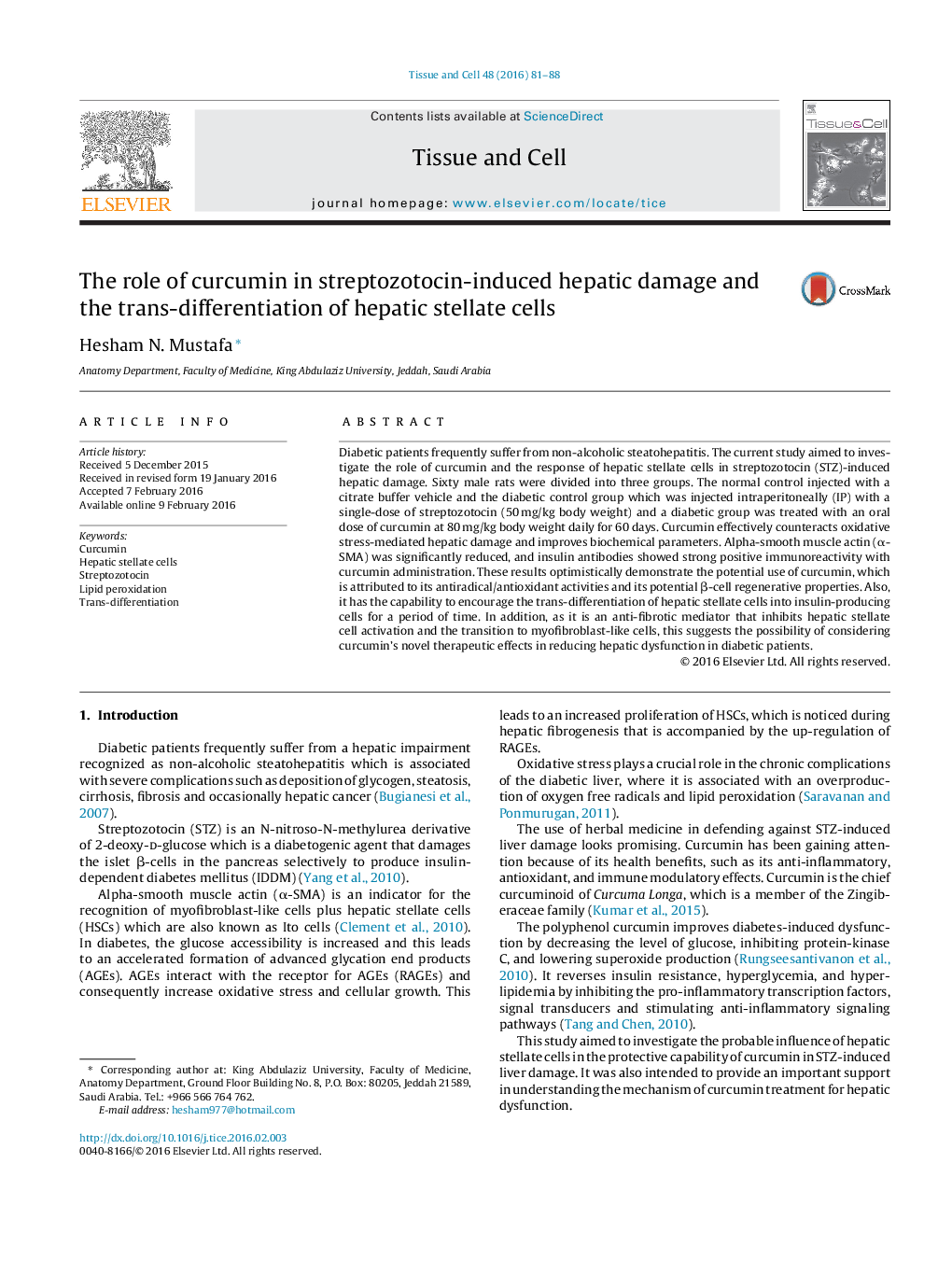| کد مقاله | کد نشریه | سال انتشار | مقاله انگلیسی | نسخه تمام متن |
|---|---|---|---|---|
| 2203516 | 1100503 | 2016 | 8 صفحه PDF | دانلود رایگان |
• Curcumin has antiradical/antioxidant activities and β-cell regenerative properties.
• It encourages the transdifferentiation of hepatic stellate cell into insulin-producing cells.
• It has an anti-fibrotic mediator by inhibiting hepatic stellate cell activation.
• It encourages the transition of hepatic stellate cell into myofibroblast-like cells.
• It opens the way for its novel therapeutic effects in reducing hepatic dysfunction in diabetic patients.
• It plays an essential role in the key event of nonalcoholic steatohepatitis and hepatic fibrogenesis associated with diabetes.
Diabetic patients frequently suffer from non-alcoholic steatohepatitis. The current study aimed to investigate the role of curcumin and the response of hepatic stellate cells in streptozotocin (STZ)-induced hepatic damage. Sixty male rats were divided into three groups. The normal control injected with a citrate buffer vehicle and the diabetic control group which was injected intraperitoneally (IP) with a single-dose of streptozotocin (50 mg/kg body weight) and a diabetic group was treated with an oral dose of curcumin at 80 mg/kg body weight daily for 60 days. Curcumin effectively counteracts oxidative stress-mediated hepatic damage and improves biochemical parameters. Alpha-smooth muscle actin (α-SMA) was significantly reduced, and insulin antibodies showed strong positive immunoreactivity with curcumin administration. These results optimistically demonstrate the potential use of curcumin, which is attributed to its antiradical/antioxidant activities and its potential β-cell regenerative properties. Also, it has the capability to encourage the trans-differentiation of hepatic stellate cells into insulin-producing cells for a period of time. In addition, as it is an anti-fibrotic mediator that inhibits hepatic stellate cell activation and the transition to myofibroblast-like cells, this suggests the possibility of considering curcumin's novel therapeutic effects in reducing hepatic dysfunction in diabetic patients.
Journal: Tissue and Cell - Volume 48, Issue 2, April 2016, Pages 81–88
